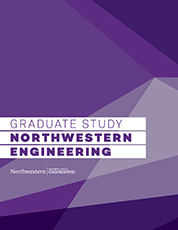Matthew Glibbery, EDI '13Lead Service Designer, City & County of San Francisco

Industry: Civic Technology, Service
Affiliated Programs
Master of Engineering Design Innovation
Alumni Interview
"EDI perfectly prepares students with the skills and approach to work in a high impact industry where you need to wear a lot of hats."
Tell us what your current title is and what your role entails.
I’m the Lead Service Designer for the City & County of San Francisco, where I lead inter-departmental efforts to understand, evaluate, and redesign some of the city’s most important services. My current focus is on transitioning from creating a few complex, high-impact services to providing the tools, training, and resources that would allow departments to be confident doing more of this work themselves.
When you started EDI, did you know what industry you wanted to work in?
After a mechanical engineering undergrad I assumed I’d become a physical product designer at an agency, but exposure to other areas of design through the studio classes had me constantly reassessing. My first role at SAP reflected that breadth of interests as it utilized design, research, and strategy skillsets. That work cut across industries including civic tech. Both the need for human-centered design and my interest in improving government services became immediately clear, leading directly to my role with SF.
Tell us about an EDI course that made an impact on you.
Designing Product Interactions with Craig Sampson sticks out to me as being particularly impactful. It explored in depth what it means to think holistically about a person's interaction with something. Craig brought in expert guests from fields like psychology and sound design to emphasize the importance of multi-modal interactions across all of the senses. It emphasized the opportunity I have with all of my design choices to invoke the intended emotions.
What is one lesson you learned during your EDI journey that has stuck with you?
In the first studio class with P&G my project team quickly gravitated to an idea we were really excited about. We invested a lot of time developing and prototyping aspects of it to test. When the feedback was mixed we doubled down on iterations, but it eventually became clear that it wasn’t working how we’d hoped and left ourselves little time to pivot. It remains for me a cautionary tale on growing too attached to an idea too soon.
What was your EDI thesis project and what inspired you to pursue it?
I designed a heart rate monitor chest strap that provides vibration feedback to help athletes hit their goal, whether it be holding a certain pace, staying in a heart rate zone, or racing a previous effort. I was running a lot during EDI and learning about various training approaches, all of which emphasized bringing an intentionality to each run. I wanted to create something that cultivated that without getting in the way of what is otherwise such a simple and intuitive activity.
What advice do you have for an EDI student interested in working in your industry?
Do it! EDI perfectly prepares students with the skills and approach to work in a high impact industry where you need to wear a lot of hats. This work is so important, and there are new civic tech teams popping up all over the country. It’s also personally rewarding to be working on and for your community.

